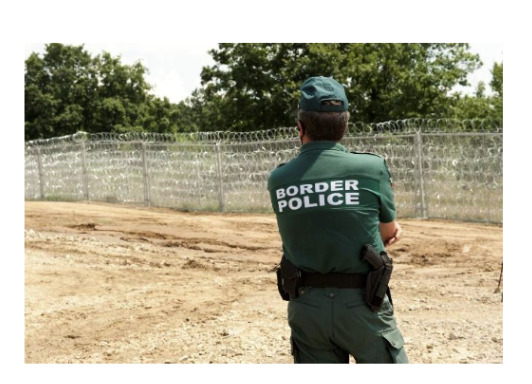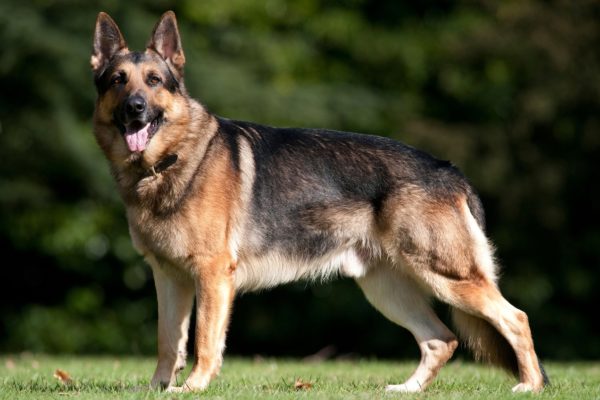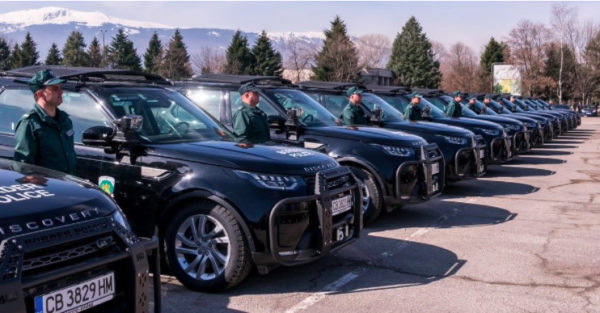No Bulgaria, next time I will let the dog eat you.
| 24.05.2022 | Malko Tarnovo to Incesirt | josoor | 41.9093143, 27.5665896 | Bulgaria | Turkey | no | no | yes | no | no | no | 32 - 32 | 1 | Tunisia | 7 | beating (with batons/hands/other), kicking, pushing people to the ground, threatening with guns, gunshots, dog attacks, forcing to undress, theft of personal belongings, reckless driving | 7 men dressed in uniforms resembling the Bulgarian border guards uniform; 2 vehicles resembling the Bulgarian border police land rovers |
This testimony recounts a pushback from Bulgaria, to Incesirt, Turkey. This is the respondent’s second pushback, the first he was subjected to was from Greece.
The respondent started his journey from crossing via Dereköy, Turkey, into Bulgaria at approximately 8 p.m. on 23/05/2022. According to the respondent, the terrain was all forest, with a wire fence five metres high, with barbed wire from the top to the bottom, and there was an unpaved road on the Bulgarian side, and then after it there was a big forest. The respondent did not see any cameras or other surveillance equipment near the border.
After the respondent crossed, he hid between trees for a few minutes until it got dark, then he continued walking. He reportedly walked for six hours, crossing approximately 12 kilometres of land continuously. He crossed hills and mountains on the way, until he saw some light of houses after the 12km, which was close to where he was apprehended. He was apprehended in a forest on 24/05/2022, at approximately 3 a.m. He was still in the forest and it was dark when he was apprehended. The respondent identified that this location was not far from Malko Tarnovo.
He then described how he was apprehended by three men and a dog. The men who apprehended him were wearing sacramento green shirts, long sleeves and pants, and they had “Border Police” written in white on their back and also in the font. There was also the Bulgarian flag present on their arm. The uniforms were identified by the respondent as similar to the Bulgarian Border guards seen in Image 1. Reportedly none of them were wearing balaclavas. The dog was identified as a “brown or black german shepherd” (Image 2).
[caption id="attachment_20206" align="alignnone" width="532"] Image 1: Backs of Bulgarian Border Police uniforms[/caption]
Image 1: Backs of Bulgarian Border Police uniforms[/caption]
 Image 2: German Shepherd
These men were also reportedly armed, “they had a machine gun, a pistol, and a black plastic baton over their waist in the holster”. These men had arrived via foot, but later the respondent saw that they had left their car on an unpaved road near to where they caught him - approx 700 metres.
The respondent explained that he was walking in the forest when he started hearing the dog barking. He started to walk slowly and then hid for two minutes, before the dog found him. The dog started to bite him and then the respondent started to scream in pain for two minutes while the uniformed men watched. “They enjoyed it”, explained the respondent, “they were laughing, and I couldn’t do anything because the dog was biting me from everywhere in my body”.
Meanwhile, uniformed men were talking in Bulgarian and they were laughing. “I didn’t understand anything, but I was begging them please please stop the dog”. After a few minutes, a man referred to as “officer” by the respondent approached him and held back the dog.
After this, one of the men stepped forward and said in English “stand up”. The respondent stood up and the man searched him. The man reportedly found the respondent’s phone in his pocket, as well as money (70 Lev and 50 Euros), and the uniformed man took them. He put the money in his pocket and passed the phone to his colleague, “every time he slapped me and continued the search”.
Reportedly, the man forced the respondent to remove the sweater he was wearing, as well as his trousers and his trainers, leaving him in his underwear, and put his belongings into a plastic bag. The men spoke to the respondent in a few English words, asking where he was from, but spoke to each other in Bulgarian. The respondent was returned his clothes, but not his other belongings, including his shoes.
The respondent explained:
Image 2: German Shepherd
These men were also reportedly armed, “they had a machine gun, a pistol, and a black plastic baton over their waist in the holster”. These men had arrived via foot, but later the respondent saw that they had left their car on an unpaved road near to where they caught him - approx 700 metres.
The respondent explained that he was walking in the forest when he started hearing the dog barking. He started to walk slowly and then hid for two minutes, before the dog found him. The dog started to bite him and then the respondent started to scream in pain for two minutes while the uniformed men watched. “They enjoyed it”, explained the respondent, “they were laughing, and I couldn’t do anything because the dog was biting me from everywhere in my body”.
Meanwhile, uniformed men were talking in Bulgarian and they were laughing. “I didn’t understand anything, but I was begging them please please stop the dog”. After a few minutes, a man referred to as “officer” by the respondent approached him and held back the dog.
After this, one of the men stepped forward and said in English “stand up”. The respondent stood up and the man searched him. The man reportedly found the respondent’s phone in his pocket, as well as money (70 Lev and 50 Euros), and the uniformed man took them. He put the money in his pocket and passed the phone to his colleague, “every time he slapped me and continued the search”.
Reportedly, the man forced the respondent to remove the sweater he was wearing, as well as his trousers and his trainers, leaving him in his underwear, and put his belongings into a plastic bag. The men spoke to the respondent in a few English words, asking where he was from, but spoke to each other in Bulgarian. The respondent was returned his clothes, but not his other belongings, including his shoes.
The respondent explained:
“Once I told them I’m Tunisian, he [the man] went back a few steps and kicked him with all his force on my stomach, and I was screaming for pain and he kept beating me with a plastic baton and other “officer” kicking me with his boots”Two men in uniforms beat him for about 15 minutes, recalled the respondent. The other man reportedly pointed his gun for a few minutes at the respondent, and then he put it back in his holster. After about 30 minutes, at 3.30 a.m., the respondent was forced to walk to where they had parked the cars. The respondent recalled:
“when I walk on dry branches it hurts, and I just scream with a low voice. One of the “officers” said “ay, ayy” and kicked me on my back and said something in Bulgarian that I did not understand. With his gun he showed me where to walk.”When they arrived, he saw one more man and two vehicles. This man was dressed in the same uniform as identified in Image 1. Both cars were reportedly black with a logo on the side, near the door. There was a large “border police” written on the bonnet of the car in white, in English. The license plates both had BG written on them, and they were white in colour but the respondent was not able to identify the plate numbers themselves. The respondent said the cars looked like land rovers displayed in Image 3. [caption id="attachment_19641" align="alignnone" width="600"]
 Image 3: Bulgarian Border Police - Discovery Landrovers [/caption]
The respondent was loaded into the trunk of the car just after 3.30 a.m. The trunk was about 1x2metre in size. It was hot and they locked the trunk. “I have a fear of locked places so I was a bit scared and confused”. There were two men (from the previously identified perpetrators) driving the vehicle he was loaded into. The driving was “too fast. Even when they drive up the hill I feel that we are going down fast”. The drive lasted for about 25 minutes, arriving at nearly 4 a.m., recounted the respondent.
The respondent was not really able to see much outside. He noticed a car light behind him, and that they were driving through a wooded area on an unpaved road, he explained.
They arrived on the side of the fence, where they parked both of the cars. The respondent was pulled out of the trunk of the car by his leg, and he fell on his head. The uniformed men reportedly kicked him on his back, while also beating him with a plastic baton and screaming at his face in Bulgarian. “I kept begging them to stop but they never care, they ever hear me and always ignore my begging”. This lasted for about 10 minutes. The beating was random, “sometimes they focus on the leg, and the arm”.
There were three more men in the same uniforms, with firearms in their holsters, at the pushback point. These men spoke to each other in Bulgarian, and told the respondent to sit down and not make any noise. He sat down for about 20 minutes, and he was not searched again during this time. He was at this point wearing his trousers and shirt.
Reportedly, one of the men then brought the dog and let it on the respondent. The dog bit the respondent, and one of the men in uniform said “No Bulgaria, next time I will let the dog eat you”. This lasted for a few seconds.
“I could barely walk and one of the “officers” kept kicking me to stand up” explained the respondent. After 30 minutes at this location, he was made to walk through the door which was opened in the fence, which led back to Turkish territory. The door was about two by one meters, and they pulled it up to open a small square which was about one by one meters. The respondent had to crawl to get out of it, despite then the men in uniform's persistent kicking, he recalled.
The pushback occurred at between about 4.30 a.m and 5 a.m. The men in uniform reportedly locked the door, switched on a torch and said in English, “go” and shot into the air. He started to move fast away from the fence, “even I was limping”.
Image 3: Bulgarian Border Police - Discovery Landrovers [/caption]
The respondent was loaded into the trunk of the car just after 3.30 a.m. The trunk was about 1x2metre in size. It was hot and they locked the trunk. “I have a fear of locked places so I was a bit scared and confused”. There were two men (from the previously identified perpetrators) driving the vehicle he was loaded into. The driving was “too fast. Even when they drive up the hill I feel that we are going down fast”. The drive lasted for about 25 minutes, arriving at nearly 4 a.m., recounted the respondent.
The respondent was not really able to see much outside. He noticed a car light behind him, and that they were driving through a wooded area on an unpaved road, he explained.
They arrived on the side of the fence, where they parked both of the cars. The respondent was pulled out of the trunk of the car by his leg, and he fell on his head. The uniformed men reportedly kicked him on his back, while also beating him with a plastic baton and screaming at his face in Bulgarian. “I kept begging them to stop but they never care, they ever hear me and always ignore my begging”. This lasted for about 10 minutes. The beating was random, “sometimes they focus on the leg, and the arm”.
There were three more men in the same uniforms, with firearms in their holsters, at the pushback point. These men spoke to each other in Bulgarian, and told the respondent to sit down and not make any noise. He sat down for about 20 minutes, and he was not searched again during this time. He was at this point wearing his trousers and shirt.
Reportedly, one of the men then brought the dog and let it on the respondent. The dog bit the respondent, and one of the men in uniform said “No Bulgaria, next time I will let the dog eat you”. This lasted for a few seconds.
“I could barely walk and one of the “officers” kept kicking me to stand up” explained the respondent. After 30 minutes at this location, he was made to walk through the door which was opened in the fence, which led back to Turkish territory. The door was about two by one meters, and they pulled it up to open a small square which was about one by one meters. The respondent had to crawl to get out of it, despite then the men in uniform's persistent kicking, he recalled.
The pushback occurred at between about 4.30 a.m and 5 a.m. The men in uniform reportedly locked the door, switched on a torch and said in English, “go” and shot into the air. He started to move fast away from the fence, “even I was limping”.
“I was limping, I could not walk far. I walked almost 4-5 km, in 6 hours. I kept walking and taking a rest. I barely could stand on my feet. My body was hurting me everywehre and I was bleeding I didn’t know where I am.”The respondent explained that he later arrived at a village called Sapedere. The respondent explained that during the pushback he was not able to express that he wanted to claim asylum. “They were ignoring me for stopping the dog bite, they never care about asylum and I didn’t have chance and I was so scared to talk and get beaten or killed for just talking. I didn’t ask”. Throughout his time he was denied being given food, water, or medical assistance.
